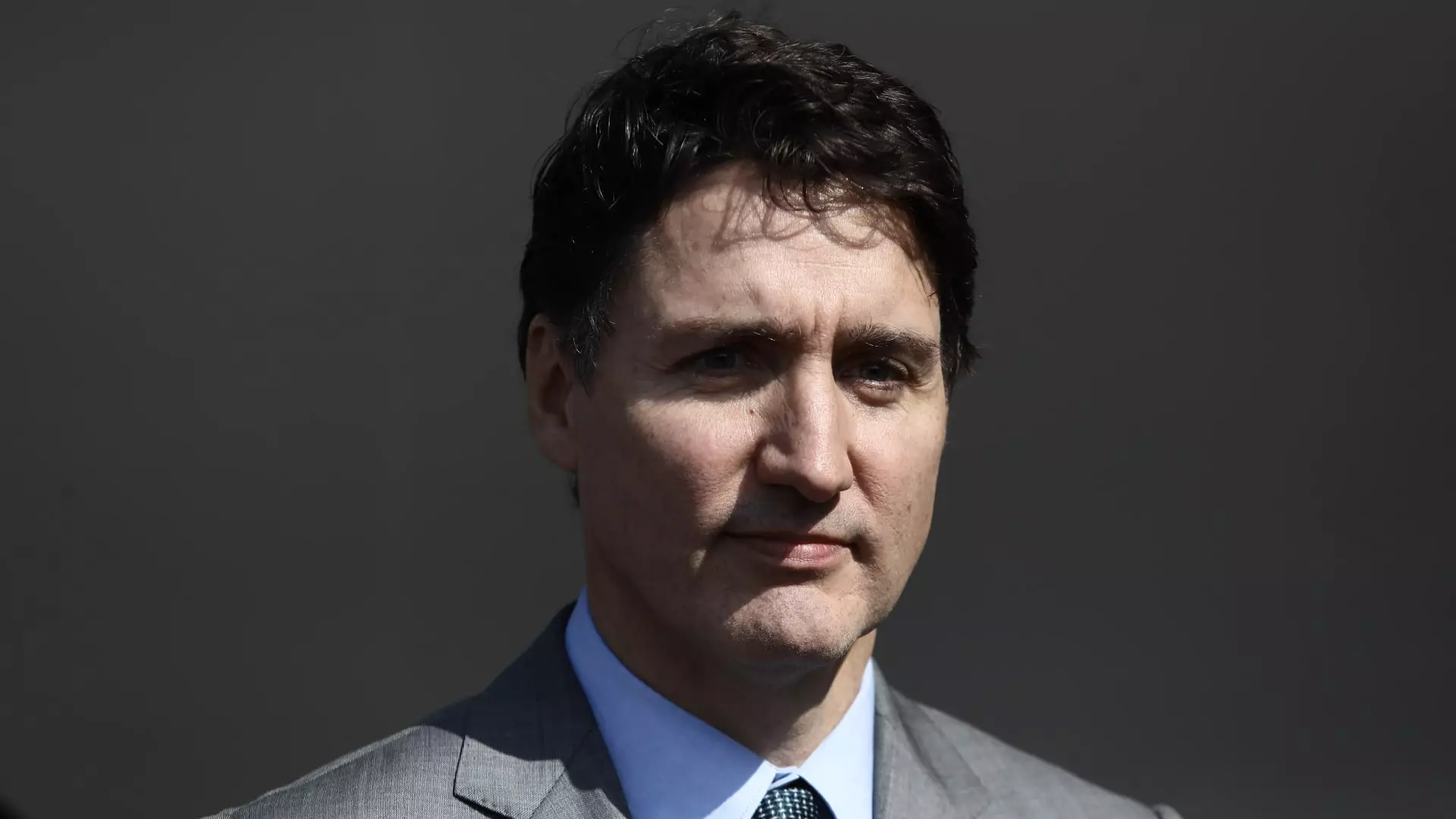As Canadian Prime Minister Justin Trudeau navigates the stormy political waters of a declining approval rating and increasingly daunting electoral prospects, speculation regarding his potential resignation has reached a fever pitch. Reports from multiple sources have suggested that Trudeau is contemplating stepping down from his position as head of the Liberal Party, with an announcement possibly imminent. This uncertainty casts a long shadow over the party, which faces mounting pressure to rejuvenate itself ahead of a looming election against the Conservative Party.
Trudeau’s tenure started during a tumultuous time for the Liberal Party. Elected as party leader in 2013, he took the reins of a political entity that had been relegated to third place in the House of Commons. His ascent was marked by promises of progressivism and an optimistic vision for Canada, embodied in his famous mantra of “sunny ways.” However, as Trudeau has experienced firsthand, governing is a different beast altogether.
Recent polling data has revealed a concerning trend for the Liberals: they are projected to suffer significant losses to the Conservatives in the forthcoming election, which needs to be conducted by late October. This impending electoral loss has prompted a growing chorus of Liberal parliamentarians urging Trudeau to resign, underscoring the internal divisions and discontent brewing within the party. The urgency of the situation has escalated, with calls for his exit coming not only from the opposition but also from his own ranks, where party members openly express alarm at the prospect of a disappointing election outcome.
Trudeau’s leadership has not been without its challenges. His administration, which once appeared steadfast in its commitment to progressive ideals, faces criticism for straying from its original mandate. Conversations about his potential resignation have gained momentum following a series of political missteps, notably his decision to demote Finance Minister Chrystia Freeland, a close ally, over policy disagreements. Freeland’s resignation marked a significant rupture in loyalty among high-ranking officials and served as a warning sign about the precariousness of Trudeau’s leadership.
As Trudeau contemplates his future, the global landscape poses additional challenges. The ramifications of the COVID-19 pandemic, in particular, have weighed heavily on his administration’s efforts. Major economic interventions aimed at supporting citizens and businesses resulted in record budget deficits, provoking public frustration as inflation continues to rise. Perceptions of inefficacy in managing these crises have further dented his approval ratings, leading to intensified scrutiny from political opponents and citizens alike.
Moreover, Trudeau’s approach to immigration policy has come under fire. The government has grappled with an influx of arrivals that has placed immense pressure on an already strained housing market. Public sentiment has shifted as a result, with many Canadians expressing their dissatisfaction regarding both immigration and economic concerns. This has contributed to a climate of instability exacerbated by external factors such as global economic fluctuations and changing geopolitical dynamics.
If Trudeau does announce his resignation, the ripple effects could drastically reshape the Liberal party landscape. The uncertainty surrounding leadership dynamics would necessitate swift action to instill confidence among party members and citizens alike. An interim leader would be required to steer the party through this transitional period while also preparing for an imminent election. Sources hint at Finance Minister Dominic LeBlanc potentially stepping in as an interim leader, but internal dynamics concerning leadership ambitions could complicate this plan.
As calls for change grow louder, the Liberal Party must grapple with the implications of Trudeau’s potential departure. Moving forward, it faces the challenge of redefining its identity while re-establishing trust with its electorate. The time is ripe for strategic reflection on how to recapture the essence of its original promise made to Canadians: progressive governance that safeguards the interests of all citizens.
The specter of Trudeau’s resignation looms large, presenting both challenges and opportunities for the Liberal Party. Whether he steps aside or continues to lead, the political landscape of Canada is on the cusp of transformation, necessitating a renewed focus on addressing the concerns of Canadians.

